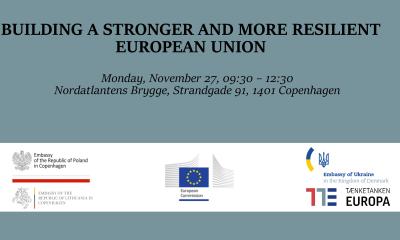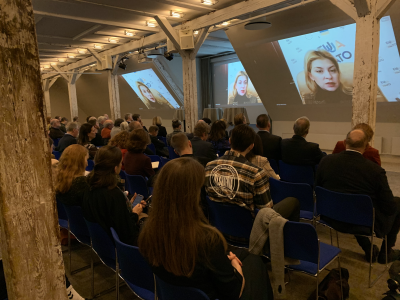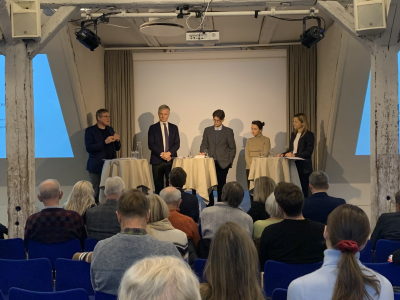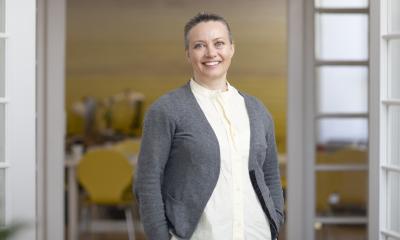BUILDING A STRONGER AND MORE RESILIENT EUROPEAN UNION

Think Tank EUROPA co-organized an event to discuss how to build a stronger and more resilient European Union.
The European Commission released the 2023 enlargement reports 8 November in which it took a close look at the progress made by the candidate countries. The key recommendation of the package is to start accession negotiations with Ukraine, Moldova and Bosnia and Herzegovina and to grant a candidate status to Georgia. The Commission‘s recommendations are top of the agenda for the upcoming European Council in December.
The conference took stock of the current state-of-play and outlook for the EU enlargement policy and had a deeper exchange on Ukraine’s path to the EU.


The message from Kyiv was clear: Ukraine is concerned 24/7 about US and European support in the time ahead. While fighting the war, Ukraine is carrying out reforms - ex. de-oligarchisation - to meet the EU's milestones. As stated by Ukraine's Deputy Prime mInister; "We have frankly done so much already that I only see membership now as more integration with the EU."
The following panel focused on the EU's readiness to enlarge. Agreement here was that enlargement is a geopolitical necessity and that accession has to be merit-based - hence at this moment not much points in the direction of a big bang enlargement like in 2004.
Key now is to keep the commitment and dynamic of the EU and Candidate Countries. A yes to opening accession negotiations with Ukraine and Moldova in December could ensure that - also because postponing the decision to 2024 would make it harder due to the European elections and the appointment of a new Commission. And while older member states like Denmark, has faced enlargement dynamics before, it is the first time Poland, Lithuania and others are on the inside in this process.


In terms of the content of what the EU has to do, there was little support for Treaty changes. Even the discussion on majority voting on foreign policy was seen by some panelists as a distraction from issues like reforms of the EU's agricultural policy and budget. One issue united panelists: The importance of having a wide public debate on enlargement.
The conference's second half focused on Ukraine. Here the Commission presented the first annual report on the country. The assessment was that much had been achieved in Ukraine - and with incredible speed. On the road ahead, the Commission outlined that a full screening of all policy areas would be done in the new year, if a yes to open negotiations was agreed on in December. Commission also pointed out that 'negotiation' was not really a good word here as there was no negotiations on the goals Ukraine has to achieve before membership. As for December's decision on money for the Ukraine facility this was deemed crucial for the continuance of Ukraine's reforms. In general there was a lot of coordination to be done between international donors in Ukraine.
The panel focused on what coudl be done by member states such as Poland, Denmark and Lithuania to support Ukraine in its accession process and gave as examples the Nordic countries' bilateral support of the Baltic states from the 1990's up until the Copenhagen Summit in 2002. Olena Halushka pointed out that EU membership was a way of ensuring sustainable peace in Europe, and not just the temporary peace obtained with the Minsk agreement after Russia's annexation of Krim in 2014. She added that "To us in Ukraine European values are much clearer than for most Europeans we have talked to. We don't want to be Belarus."
Speakers included: Olha Stefanishyna, Deputy Prime Minister for European and Euro-Atlantic Integration of Ukraine, Olena Halushka, board member of the Ukrainian “Anti-corruption Action Center”, Marlene Rosemarie Madsen, Deputy Director of Ukraine Service and Head of the Economic and Sectoral Policies Unit in the Commission’s DG NEAR, Justinas Mickus, Senior Policy Analyst at STRATA, associate researcher at European Council on Foreign Relations, Marta Stachowiak, Director of the External EU Policy Departament at the Ministry of Foreign Affairs of the Republic of Poland, Tadeusz Iwański, Head of Department for Belarus, Ukraine and Moldova at the Centre for Eastern Studies think-tank and Ditte Brasso Sørensen, Chief Analyst, Tænketanken Europa.
